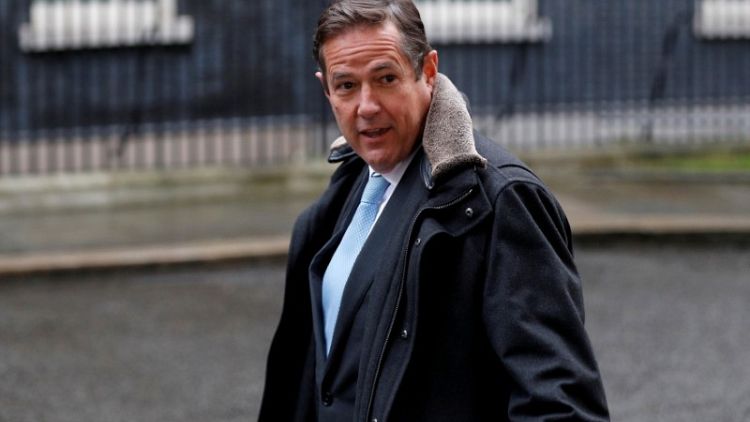LONDON (Reuters) - The million pound fine and censure handed down to Barclays boss Jes Staley over how he handled a whistleblowing case was correctly calibrated and sent a clear message to the industry, Bank of England Deputy Governor Sam Woods said on Wednesday.
Woods was speaking in parliament's Treasury Select Committee, some of whose members questioned whether Staley's punishment last year had been tough enough for such a high profile banker.
Staley sought to unmask a whistleblower who sent letters criticising an employee of the bank.
"I have consistently acknowledged that my personal involvement in this matter was inappropriate, and I have apologised for mistakes which I made," Staley said in a Barclays statement in May when the fine was announced.
Barclays <BARC.L> said at the time that the regulators did not allege that Staley acted with a lack of integrity or that he lacked fitness and propriety to continue in his job.
"The correct response was the one we gave, a fine and public censure," Woods said.
"That should send a message to everybody that whistleblowing is a live rail that you touch at your risk."
Staley had made a very significant and egregious error and the investigation team from the BoE and the Financial Conduct Authority got to the bottom of what happened, Woods said.
Staley should not have intervened in the whistleblowing case unfolding at Barclays, Woods said.
Barclays was fined $15 million by the New York State Department of Financial Services for violating banking law in the whistleblowing case, raising the question that American authorities were tougher than their UK counterparts, lawmakers said.
Woods said the BoE took the view that the fault lay mainly with an individual and not the bank itself.
The case was the UK regulators' first under a new regime, known as the senior manager regime (SMR), to make top officials at banks and insurers directly accountable for their actions.
Woods said while the SMR regime would help enforce "normal" behaviour at banks, it could not stop an individual that wanted to pursue criminal activities and fraud.
(Reporting by Huw Jones; Editing by Ken Ferris)



